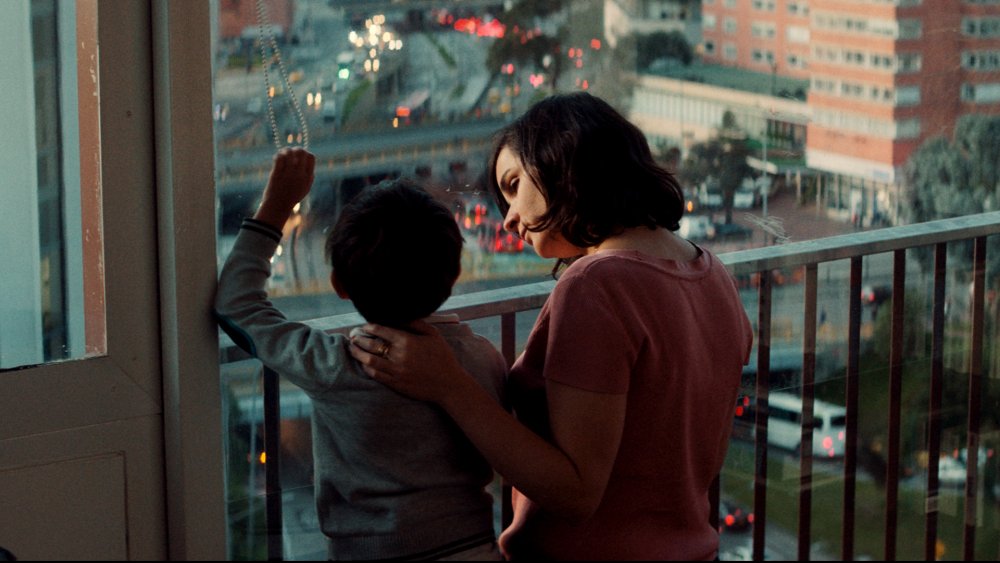Considering the number of child actors this year at Cannes, one could write a feature on filmmakers with a talent for directing children, with Colombian filmmaker Franco Lolli standing proud amongst them. His debut feature, Gente de bien (2014) – which also screened in Critics’ Week – poignantly captured the rebellion of a small boy (Brayan Santamarià) after his parents’ separation. Although in Lolli’s new film Litigante the anger belongs mostly to the adults, a child, Antonio (Antonio Martinez), is once again the narrative’s emotional focal point. The family’s unconditional love for him is its only incontestable tie.
Colombia/France 2019
1hr 35mins
Director Franco Lolli
Cast
Silvia Carolina Sanín
Leticia Leticia Gómez
Antonio Martínez
Vladimir Durán
Alejandra Sarria
In Spanish
UK release date 10 July online
Distributor Curzon ArtificialEye
curzonhomecinema.com/film/watch-litigante-film-online
► Trailer
Litigante’s action revolves around the escalating tensions between a querulous chain-smoking matriarch, Leticia (Leticia Gómez), who is dying of lung cancer, and her two daughters – particularly the older one, Silvia (Carolina Sanin). Leticia and Silvia are played by non-professional actors, and it’s remarkable how much feeling and argumentative ferocity Lolli elicits from them. Both mother and daughter are passionate, unrelenting lawyers, and when Silvia learns that her boss has awarded illegal construction contracts, the women’s profound disagreement about their profession’s moral obligations reaches a boiling point. More importantly, however, Leticia’s high standards have lead to Silvia’s inability to ever be satisfied with her motherhood, or her relationships. As she comes to realise that she will soon lose her mother for good, she increasingly struggles to forgive and to accept, against her inner judgements.
Lolli’s visual approach is understated and unobtrusive – allowing the dialogue to roll in a naturalistic, true-to-life vein – and punctuates scenes with extensive close-ups. The pay-off is particularly high in the middle of the film, when Silvia’s desire to enjoy her mother’s last days to the fullest and to surround her with loving, nurturing care clashes with her own inability to ignore the signs of her mother’s agony.

Santamarià and Sanín
It’s here that little Antonio plays a crucial role: the boy, with his surprisingly pensive face, adds variety to individual scenes. When, early in the film, Leticia returns from yet another round of chemo and barely makes it up the stairs, she nevertheless re-emerges from her bedroom to go out trick-or-treating. Thus Antonio’s flittering, fidgety, warm presence, as well as his knowing face and final angry outburst, gives welcome breathing room to a story that otherwise could have seemed merciless, and mirthless.
One must also give credit to Lolli for turning a title as prosaic as ‘litigator’ into something more fluid and imbued with feeling. The word references, quite obviously, the mother and daughter’s careers, as well as their unique sense of justice, but it also alludes to their fiercely confrontational, combative mother-daughter relationship, in which love, honesty and competitiveness mix dangerously. I would also like to think that ‘litigator,’ in its softer permutation, is linked to another word, ‘mitigate’, and that it’s this connection that ultimately drives Lolli’s film: a deep belief that despite all the heartaches, the balance of life somehow leans towards hope – a grace given these characters in the form of small, fleeting yet meaningful acts of love.
-
The Digital Edition and Archive quick link
Log in here to your digital edition and archive subscription, take a look at the packages on offer and buy a subscription.









